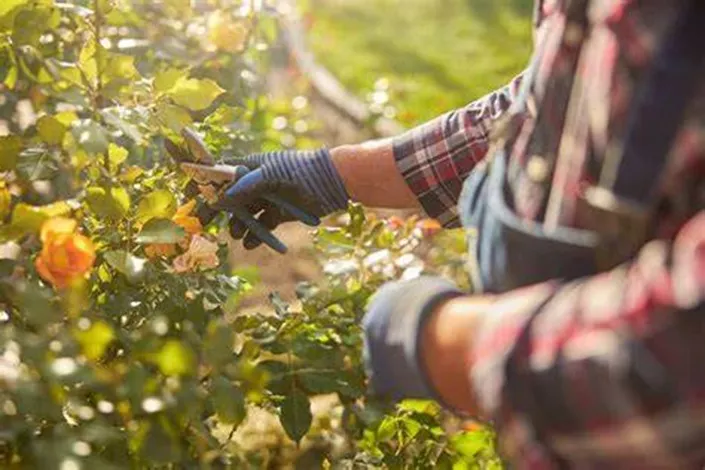Roses are beautiful, fragrant flowers that brighten any garden. However, they are also vulnerable to many pests. These pests can damage leaves, stems, and flowers, reducing their health and beauty. To keep roses healthy, you need to know how to identify and control common pests. This article will guide you through the best methods to protect your roses.
Common Pests That Attack Roses
1. Aphids
Aphids are tiny, soft-bodied insects that suck sap from plants. They can be green, black, red, or brown. They weaken roses by feeding on young stems and leaves. Aphids also produce a sticky substance called honeydew, which leads to sooty mold growth.
How to Control Aphids:
- Manual Removal: Spray water on the affected plants to knock aphids off.
- Natural Predators: Ladybugs and lacewings eat aphids. Release them in your garden.
- Neem Oil: This organic pesticide disrupts aphid growth and repels them.
- Insecticidal Soap: Spray directly on aphids to kill them.
2. Spider Mites
Spider mites are tiny arachnids that suck sap from leaves. They cause yellow spots and fine webbing on the underside of leaves.
How to Control Spider Mites:
- Increase Humidity: Mites thrive in dry conditions. Spray water on leaves to increase moisture.
- Use Predatory Mites: These mites feed on spider mites and help control their population.
- Neem Oil or Insecticidal Soap: Apply regularly to affected plants.
3. Japanese Beetles
These metallic green beetles eat rose petals and leaves, leaving behind skeletonized foliage.
How to Control Japanese Beetles:
- Handpicking: Remove beetles by hand and drop them into soapy water.
- Row Covers: Use mesh fabric to protect roses from beetles.
- Neem Oil: Reduces feeding and egg-laying activity.
- Milky Spore: This bacteria-based treatment kills Japanese beetle larvae in the soil.
4. Thrips
Thrips are tiny insects that feed on rose petals and buds. They cause flowers to look deformed and discolored.
How to Control Thrips:
- Remove Infested Buds: Cut off damaged flowers to prevent thrips from spreading.
- Introduce Predators: Green lacewings and predatory mites help control thrips.
- Neem Oil or Insecticidal Soap: Spray on affected areas.
5. Rose Slugs
Rose slugs are larvae of sawflies. They chew on rose leaves, leaving behind a skeletonized appearance.
How to Control Rose Slugs:
- Handpicking: Remove larvae manually.
- Horticultural Oil: Kills young larvae.
- Insecticidal Soap: Effective against soft-bodied larvae.
6. Scale Insects
Scale insects appear as small, hard bumps on stems and leaves. They suck sap and weaken plants.
How to Control Scale Insects:
- Scrape Them Off: Use a brush to remove them.
- Neem Oil: Disrupts their growth and suffocates them.
- Predatory Insects: Ladybugs and lacewings help control scale populations.
Organic Pest Control Methods
If you prefer natural solutions, consider these organic pest control methods:
1. Neem Oil
Neem oil is a natural pesticide that repels many pests. Spray it on roses once a week for best results.
2. Companion Planting
Certain plants repel pests. Plant garlic, marigolds, or chives near roses to deter insects.
3. Beneficial Insects
Encourage natural predators like ladybugs, lacewings, and predatory mites in your garden.
4. Diatomaceous Earth
This natural powder damages pests’ exoskeletons, causing dehydration and death. Sprinkle it around your plants.
Chemical Pest Control for Roses
Sometimes, organic methods are not enough. In such cases, chemical pesticides may be necessary.
1. Systemic Insecticides
These pesticides are absorbed by the plant and kill insects when they feed. They offer long-term protection.
2. Contact Insecticides
These pesticides kill pests on contact. They work quickly but may need frequent application.
3. Insecticidal Soaps
These soaps break down the outer coating of pests, causing them to dry out and die.
4. Horticultural Oils
These oils smother pests like aphids, scale, and mites.
Preventing Pest Infestations
Preventing pests is easier than controlling them. Follow these tips to keep your roses healthy:
1. Keep Your Garden Clean
Remove fallen leaves and dead plant material to prevent pests from hiding and breeding.
2. Prune Regularly
Trim your roses to improve air circulation and reduce pest problems.
3. Water Properly
Overwatering can attract pests. Water roses at the base to prevent fungal diseases and discourage insects.
4. Use Mulch
Mulching with organic materials like bark or straw helps retain moisture and prevent pests.
5. Monitor Your Plants
Check your roses regularly for signs of pests. Early detection makes control easier.
Conclusion
Keeping pests away from your roses requires a combination of natural and chemical methods. Regular monitoring and preventive care will help maintain healthy, beautiful roses. Use organic solutions like neem oil and beneficial insects when possible. If pests persist, consider chemical treatments carefully. By following these methods, you can enjoy stunning roses all season long.
Related Topics:
- How to Avoid Pests on Plants
- How to Avoid Pests in Indoor Plants
- How Do I Get Rid of Bugs on My Succulents


